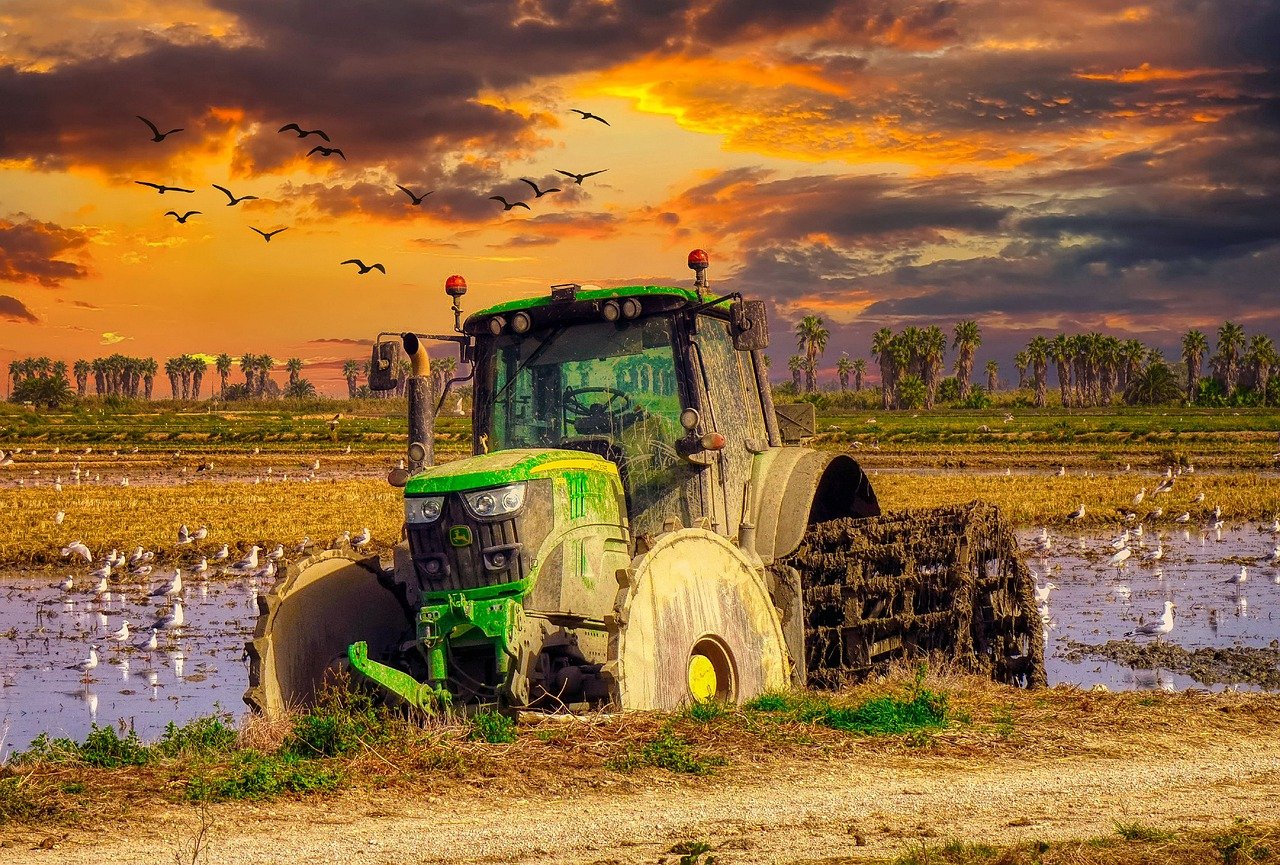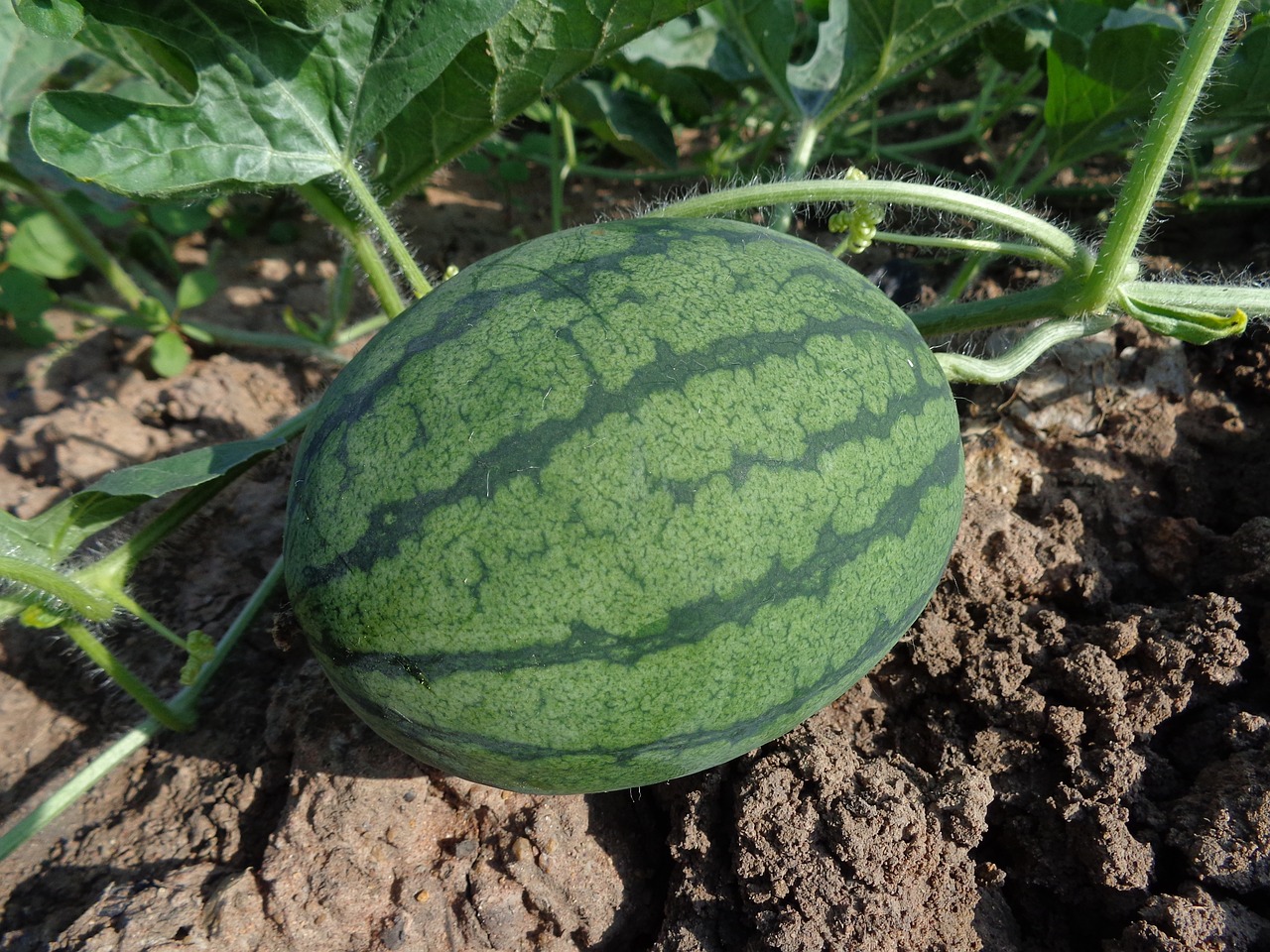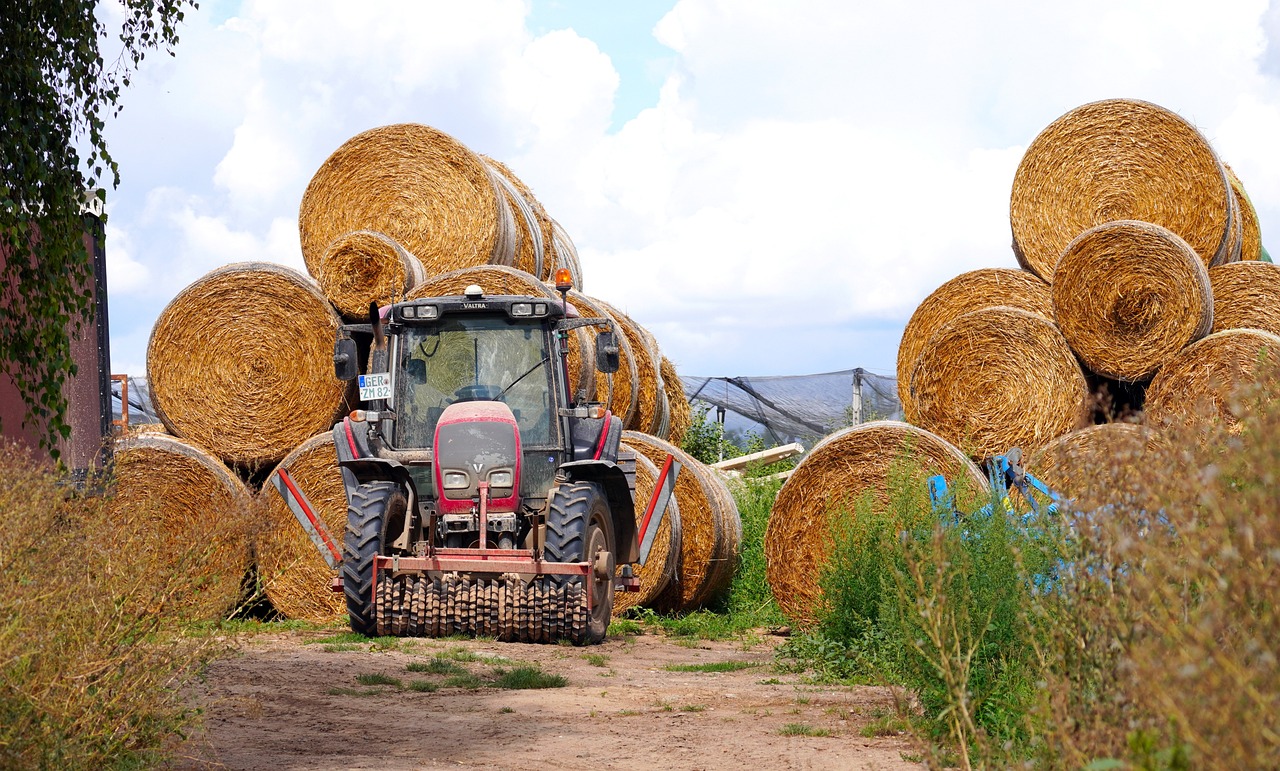What are the Economic Benefits of Eco-Friendly Farming?
In today’s rapidly changing world, the conversation around sustainable practices is more vital than ever. Eco-friendly farming, often referred to as sustainable agriculture, is not just a trend; it’s a movement that’s reshaping the agricultural landscape. But why should farmers consider this shift? The answer lies in the **economic benefits** that come with adopting eco-friendly practices. Not only do these methods promote environmental stewardship, but they also pave the way for increased profitability, enhanced community well-being, and a more resilient economy. Imagine a world where farmers can thrive financially while also nurturing the land they depend on. Sounds appealing, right? Let’s dive into the various economic advantages that eco-friendly farming can offer.
One of the most immediate economic benefits of eco-friendly farming is the **significant cost savings** on inputs. Traditional farming often relies heavily on chemical fertilizers and pesticides, which can be quite expensive. By adopting natural alternatives, farmers can reduce these costs substantially. For example, using compost and organic fertilizers not only improves soil health but also cuts down on the need for synthetic products. This shift can lead to a more sustainable budget for farmers, allowing them to allocate resources to other vital areas of their operations. Furthermore, the long-term savings can be impressive, as eco-friendly practices can lead to lower overall input costs over time. It’s a classic case of spending less to gain more!
It might sound counterintuitive, but eco-friendly practices can actually lead to **increased crop yields**. How does this work? Sustainable farming methods enhance soil health and promote biodiversity, which are crucial for robust agricultural productivity. When farmers prioritize practices like crop rotation, cover cropping, and organic amendments, they are essentially building a stronger foundation for their crops. Healthy soil retains moisture better, provides essential nutrients, and supports a diverse ecosystem of beneficial organisms. This is where the magic happens. For instance, farms that incorporate these practices often report higher yields compared to those that stick to conventional methods. It's like giving your plants a VIP treatment—they thrive, and so does your bottom line!
Healthy soil is the backbone of sustainable agriculture. When farmers invest in eco-friendly practices, they are not just growing crops; they are enhancing the very medium that supports those crops. Improved soil health leads to better water retention, nutrient availability, and overall productivity. Techniques such as no-till farming and organic amendments contribute to soil structure and fertility. Think of it as nurturing a garden; the better the soil, the more vibrant and fruitful the plants will be. This focus on soil health is vital, as it ensures that farmers can continue to produce high-quality crops year after year.
Incorporating organic matter into the soil is one of the cornerstones of eco-friendly farming. Practices like composting and cover cropping enrich the soil, boosting its fertility and structure. Composting not only recycles waste but also provides a rich source of nutrients that can lead to healthier plants. Cover crops, on the other hand, protect the soil from erosion and suppress weeds, creating a more conducive environment for crops to flourish. It’s a win-win situation where farmers can enhance their soil while also reducing their reliance on synthetic fertilizers.
Soil erosion is a significant concern for many farmers, as it can lead to decreased productivity and long-term land degradation. Eco-friendly practices play a crucial role in preventing erosion. Techniques such as contour farming, agroforestry, and maintaining ground cover can protect the land and maintain its productivity over time. By implementing these methods, farmers not only safeguard their investments but also contribute to the overall health of the ecosystem. It’s like building a fortress around your crops—protecting them from the elements while ensuring they have the best chance to thrive.
Promoting biodiversity is essential for ecological balance, and eco-friendly farming practices are at the forefront of this initiative. By fostering diverse ecosystems, farmers can benefit both the environment and their agricultural productivity. A diverse farm can better withstand pests and diseases, reducing the need for chemical interventions. Plus, a rich variety of plants and animals enhances the resilience of the farm ecosystem. In a way, it’s like creating a vibrant community; the more diverse it is, the stronger and more adaptable it becomes.
Another significant economic advantage of eco-friendly farming is the access to **premium markets**. Consumers are increasingly seeking organic and sustainable products, often willing to pay a higher price for them. This growing demand presents a lucrative opportunity for farmers who embrace eco-friendly practices. By transitioning to organic farming, they can tap into these premium markets, enhancing their profitability. It’s a shift that not only benefits the farmer’s wallet but also aligns with the values of conscious consumers.
The trend toward organic products is not just a passing fad; it reflects a fundamental change in consumer behavior. More and more people are prioritizing health and sustainability in their purchasing decisions. This shift creates a golden opportunity for farmers to cater to a growing market. By aligning their practices with consumer preferences, farmers can see their sales soar. It’s like riding a wave of change—those who adapt quickly will reap the rewards.
Obtaining eco-certifications can significantly enhance a farm's reputation. Certifications such as USDA Organic or Fair Trade not only validate the farmer’s commitment to sustainable practices but also attract conscious consumers. This section discusses the advantages of branding and marketing eco-friendly products. With a strong brand that emphasizes sustainability, farmers can differentiate themselves in a crowded marketplace. It’s not just about selling produce; it’s about telling a story that resonates with consumers.
Lastly, eco-friendly farming supports local economies by creating jobs and fostering community engagement. Sustainable agriculture often involves local supply chains, which means that money spent on food stays within the community. This economic ripple effect can lead to a more vibrant local economy, where farmers, consumers, and businesses thrive together. In essence, eco-friendly farming is not just about the individual farmer; it’s about building a **stronger community**. When farmers succeed, everyone benefits.
- What are eco-friendly farming practices? Eco-friendly farming practices include methods that promote sustainability, such as organic farming, crop rotation, and reduced chemical use.
- How does eco-friendly farming benefit the environment? It enhances soil health, promotes biodiversity, and reduces pollution from chemicals.
- Can eco-friendly farming be profitable? Yes, many farmers find that eco-friendly practices lead to cost savings and access to premium markets, resulting in increased profitability.
- What are some examples of eco-friendly farming? Examples include organic farming, permaculture, agroforestry, and regenerative agriculture.

Cost Savings on Inputs
When it comes to farming, one of the biggest challenges faced by farmers is the rising cost of inputs. Traditional farming often relies heavily on chemical fertilizers and pesticides, which can take a huge bite out of a farmer's budget. However, by adopting eco-friendly farming practices, farmers can significantly reduce these costs and improve their bottom line. Imagine being able to grow your crops without the hefty price tag of synthetic chemicals. Sounds appealing, right?
Eco-friendly methods, such as organic farming and permaculture, prioritize natural alternatives that not only benefit the environment but also the farmer's wallet. For instance, instead of purchasing expensive fertilizers, farmers can use compost or manure, which are often readily available and much cheaper. By making this switch, farmers can save on input costs while enhancing the health of their soil. This leads to a win-win situation where the environment thrives, and so does the farmer's profitability.
Let’s break it down further. Consider the following cost-saving opportunities:
- Natural Fertilizers: Utilizing compost or green manure can drastically reduce the need for synthetic fertilizers, which are not only costly but also harmful to the ecosystem.
- Pest Control: Implementing integrated pest management (IPM) strategies can cut down on the reliance on chemical pesticides, saving money while promoting a balanced ecosystem.
- Water Conservation: Eco-friendly farming techniques often include rainwater harvesting and drip irrigation, which can lower water costs significantly.
Moreover, the initial investment in eco-friendly practices may seem daunting, but the long-term savings are undeniable. Studies have shown that farmers who switch to sustainable practices often see a return on investment within a few seasons. Not only do they save money on inputs, but they also experience less volatility in their costs, leading to a more stable financial future.
In summary, by transitioning to eco-friendly farming, farmers can enjoy substantial cost savings on inputs. This shift not only enhances their profitability but also contributes to a healthier planet. It’s an investment in the future, both financially and environmentally. So, why not make the switch? The benefits are clear, and the savings are just waiting to be unlocked!

Increased Crop Yields
When we talk about eco-friendly farming, one of the most exciting benefits is the potential for . It's like discovering a hidden treasure in your backyard; you just need to know where to dig! Sustainable practices can dramatically enhance soil health and biodiversity, which in turn leads to improved productivity. Imagine a garden that not only flourishes but also thrives without the heavy reliance on synthetic fertilizers and pesticides. This is the magic of eco-friendly farming.
So, how does this actually happen? Well, it all starts with the soil. Healthy soil is the foundation of any successful farm, and eco-friendly methods prioritize its vitality. By implementing practices like crop rotation, cover cropping, and organic amendments, farmers can boost the natural fertility of their land. This not only improves the soil structure but also increases its ability to retain water and nutrients, making it a powerhouse for growing crops. Think of it as giving your plants a cozy, nutrient-rich bed to sleep in, which ultimately leads to better growth and yields.
Moreover, the incorporation of organic matter plays a pivotal role in this process. When farmers add compost or use cover crops, they are enriching the soil with essential nutrients. This organic matter acts like a sponge, holding onto moisture and making it available to plants when they need it most. It's like having a reliable friend who always shows up with a refreshing drink when you're parched!
Additionally, eco-friendly farming practices help in reducing soil erosion, which is a significant threat to crop yields. Erosion can wash away the topsoil, where most of the nutrients reside, leading to less productive land. Techniques such as contour farming, agroforestry, and maintaining ground cover can significantly mitigate this risk. By protecting the soil, farmers ensure that their crops have the best chance of thriving year after year.
Now, let’s not forget about biodiversity! Promoting a variety of plants and animals on the farm can create a more resilient ecosystem. This means that farmers can benefit from natural pest control and pollination, which are essential for high yields. Imagine having a team of tiny helpers working tirelessly to keep your crops healthy and flourishing. It’s a win-win situation!
In conclusion, the economic advantages of increased crop yields through eco-friendly farming practices are undeniable. Not only do these methods lead to a more sustainable agricultural system, but they also provide farmers with the opportunity to maximize their profits while caring for the environment. So, if you're a farmer looking to boost your yields, why not consider going green? The benefits might just surprise you!
- What are some eco-friendly farming practices that increase crop yields? Techniques such as crop rotation, cover cropping, and organic amendments can significantly enhance soil health and productivity.
- How does soil health affect crop yields? Healthy soil retains water and nutrients better, providing a solid foundation for plants to grow, which leads to higher yields.
- Can eco-friendly farming methods be profitable? Absolutely! By reducing input costs and accessing premium markets, eco-friendly farming can lead to increased profitability.

Soil Health Improvement
Healthy soil is the backbone of successful agriculture, and when it comes to eco-friendly farming, soil health improvement takes center stage. Think of soil as a living entity, bustling with microorganisms, nutrients, and organic matter. When farmers adopt sustainable practices, they are essentially nurturing this living system, which in turn leads to a plethora of benefits. By improving soil health, farmers can enhance water retention, increase nutrient availability, and boost overall crop resilience. But how exactly does eco-friendly farming contribute to these vital improvements?
One of the primary methods for enhancing soil health is through the incorporation of organic matter. This can be achieved through practices like composting and cover cropping. Composting allows farmers to recycle plant waste and animal manure, creating a nutrient-rich amendment that enriches the soil. This organic matter not only provides essential nutrients but also improves soil structure, promoting better aeration and drainage. In fact, studies have shown that adding organic matter can increase soil fertility levels significantly, leading to healthier plants and higher yields.
Another crucial aspect of soil health improvement is the reduction of soil erosion. Traditional farming methods often lead to the degradation of soil structure, making it more susceptible to erosion from wind and water. Eco-friendly practices, such as no-till farming and crop rotation, help maintain the integrity of the soil. By preventing erosion, farmers can protect their land, ensuring that it remains productive for years to come. This is particularly important in an era where climate change poses significant threats to agricultural sustainability.
To further illustrate the importance of soil health, consider the following benefits:
- Enhanced Water Retention: Healthy soil can hold more water, reducing the need for irrigation.
- Nutrient Availability: Improved soil health increases the availability of nutrients to plants, leading to stronger growth.
- Resilience to Pests and Diseases: Healthier soil fosters robust crops that are better equipped to fend off pests and diseases.
In summary, the journey toward eco-friendly farming begins with soil health improvement. By focusing on enriching the soil with organic matter and employing sustainable practices, farmers can create a thriving ecosystem that supports both their crops and the environment. This not only leads to higher productivity but also ensures that the land remains viable for future generations. The benefits of investing in soil health are clear, and they pave the way for a more sustainable and profitable agricultural landscape.
- What is soil health? Soil health refers to the ability of soil to function as a living ecosystem that sustains plants, animals, and humans.
- How does eco-friendly farming improve soil health? Eco-friendly farming improves soil health by enhancing organic matter, reducing erosion, and promoting biodiversity.
- Why is healthy soil important for agriculture? Healthy soil supports better crop yields, reduces the need for chemical inputs, and enhances resilience against pests and diseases.
- What practices can farmers adopt to improve soil health? Farmers can adopt practices such as cover cropping, composting, and no-till farming to enhance soil health.

Organic Matter Enrichment
When we talk about eco-friendly farming, one of the most powerful tools in a farmer's arsenal is . This practice involves adding natural materials, like compost and cover crops, to the soil, which can dramatically enhance its fertility and structure. Imagine your soil as a sponge; the more organic matter you add, the more water and nutrients it can hold. This is crucial for crops during dry spells, ensuring they have the resources they need to thrive.
Incorporating organic matter into the soil not only increases its nutrient content but also improves its overall health. Healthy soil is like a well-balanced diet for plants. It provides essential nutrients, enhances microbial activity, and promotes better root development. Farmers who embrace organic matter enrichment often see a noticeable difference in their crop yields. It's like giving your plants a multivitamin—they just grow better!
Moreover, the benefits of organic matter enrichment extend beyond just the immediate crop cycle. Over time, it builds up the soil's structure, making it more resilient against erosion and compaction. This means that the land can sustain agricultural activities for years to come without degrading. Here are some key benefits of organic matter enrichment:
- Enhanced Nutrient Availability: Organic matter releases nutrients slowly, providing a steady supply for plants.
- Improved Soil Structure: It helps create aggregates, which improve aeration and water infiltration.
- Increased Microbial Activity: Healthy soil teems with life, which is essential for nutrient cycling.
- Better Water Retention: Soils rich in organic matter can hold more moisture, reducing the need for irrigation.
Farmers can achieve organic matter enrichment through various methods. Composting kitchen scraps, yard waste, and other organic materials is a fantastic way to create nutrient-rich compost that can be added back to the soil. Cover cropping, where farmers plant specific crops during off-seasons, not only prevents erosion but also adds organic matter when these crops are tilled back into the soil. This practice is akin to a farmer planting a green blanket over the soil, protecting it from the harsh elements while simultaneously feeding it.
In conclusion, organic matter enrichment is a cornerstone of eco-friendly farming. It not only boosts crop productivity but also promotes sustainable land use, ensuring that future generations can enjoy the fruits of the earth. By investing in organic matter, farmers are investing in a healthier, more productive future for their farms and the environment.
What is organic matter enrichment?
Organic matter enrichment refers to the process of adding natural materials, such as compost and cover crops, to the soil to improve its fertility and structure.
How does organic matter benefit crops?
Organic matter enhances nutrient availability, improves soil structure, increases microbial activity, and boosts water retention, all of which contribute to healthier and more productive crops.
Can I create my own organic matter?
Absolutely! You can compost kitchen scraps, yard waste, and other organic materials to create nutrient-rich compost that can be added to your soil.
What are cover crops?
Cover crops are plants grown during off-seasons to prevent soil erosion and improve soil health. When tilled back into the soil, they add organic matter and nutrients.

Reduced Erosion
One of the most pressing challenges in agriculture today is soil erosion, which can lead to the loss of fertile land and decreased agricultural productivity. Eco-friendly farming practices play a vital role in reducing erosion and maintaining the integrity of the soil. By adopting sustainable techniques, farmers not only protect their land but also ensure long-term viability for their crops. But how exactly do these practices make a difference?
First and foremost, eco-friendly farming emphasizes the importance of cover crops. These are plants that are grown primarily to cover the soil rather than for the purpose of being harvested. Cover crops, such as clover or rye, create a protective layer over the soil, preventing it from being washed away by heavy rains or blown away by strong winds. This natural barrier significantly reduces erosion, allowing the soil to retain its nutrients and moisture, which are essential for healthy crop growth.
Moreover, employing no-till farming is another effective strategy. In traditional farming, tilling the soil can disturb its structure, making it more susceptible to erosion. No-till farming, on the other hand, involves minimal disturbance to the soil. This method helps maintain soil structure and integrity, allowing for better water retention and reducing the chances of erosion. Imagine the soil as a sponge; when it's disturbed, it loses its ability to hold water effectively. By keeping the soil intact, farmers can ensure that their crops receive the moisture they need without the risk of erosion.
Additionally, the use of organic matter is crucial in combating erosion. When farmers incorporate compost or other organic materials into their soil, they enhance its structure and fertility. Healthy soil with ample organic matter is better able to absorb water and resist erosion. This is akin to building a strong fortress; the more robust the foundation, the less likely it is to crumble under pressure. By enriching the soil, farmers not only protect it from erosion but also enhance its ability to support crops.
Furthermore, implementing buffer strips along waterways can significantly reduce erosion. These strips consist of grasses or shrubs planted between farmland and water bodies. They act as a barrier, slowing down water runoff and trapping sediment before it can enter rivers and streams. This not only protects the water quality but also helps to maintain the soil on the farm. Think of buffer strips as nature's safety net, catching the soil and nutrients before they can wash away.
In conclusion, the adoption of eco-friendly farming practices is essential for reducing erosion and promoting sustainable agriculture. By using cover crops, practicing no-till farming, enriching soil with organic matter, and creating buffer strips, farmers can protect their land from erosion while also enhancing productivity. The benefits are twofold: healthier soil leads to better crops, and the preservation of this vital resource ensures that future generations can continue to farm sustainably. It's a win-win for both farmers and the environment!
- What are cover crops, and how do they help reduce erosion?
Cover crops are plants grown to protect and enrich the soil. They help prevent erosion by creating a protective layer that holds the soil in place. - What is no-till farming?
No-till farming is a method that minimizes soil disturbance, helping to maintain its structure and reduce erosion. - How does organic matter benefit soil health?
Incorporating organic matter improves soil structure, enhances fertility, and increases water retention, all of which help combat erosion. - What are buffer strips, and why are they important?
Buffer strips are vegetated areas that slow down water runoff and trap sediment, protecting water quality and preventing soil erosion.

Biodiversity Enhancement
Promoting biodiversity is not just a buzzword; it’s a fundamental principle of eco-friendly farming that can lead to a healthier ecosystem and, ultimately, more productive agricultural practices. When farmers adopt sustainable methods, they create a rich tapestry of life that benefits both the environment and their crops. Imagine a vibrant landscape where various species of plants, insects, and animals coexist, each playing a crucial role in the ecosystem. This diversity is like a well-orchestrated symphony, where every instrument contributes to a harmonious outcome.
One of the significant advantages of enhancing biodiversity is the natural pest control it offers. By fostering a variety of species, farmers can attract beneficial insects like ladybugs and lacewings that prey on harmful pests. This reduces the reliance on chemical pesticides, which not only cuts costs but also minimizes environmental impact. Furthermore, a diverse ecosystem can lead to improved pollination, as different species of bees and other pollinators thrive in varied habitats. This is particularly vital for crops that depend heavily on pollination for fruit and seed production.
Additionally, biodiversity contributes to soil health. Different plants have varying root structures and nutrient requirements, which means they can utilize the soil's resources more efficiently. This leads to a more resilient soil structure, capable of retaining moisture and nutrients better than monoculture systems. For instance, cover crops like clover and vetch not only fix nitrogen in the soil but also provide habitat for a variety of organisms. The table below illustrates how diverse cropping systems can enhance soil health:
| Crop Type | Soil Benefit | Example |
|---|---|---|
| Legumes | Nitrogen fixation | Clovers, Peas |
| Cover Crops | Soil erosion prevention | Rye, Buckwheat |
| Diverse Perennials | Improved soil structure | Alfalfa, Native grasses |
Moreover, enhancing biodiversity can lead to better resilience against climate change. Diverse ecosystems are generally more robust and can withstand extreme weather events, such as droughts or floods. When farmers cultivate a variety of crops and maintain natural habitats, they create a buffer against the uncertainties of climate variability. This resilience not only safeguards the farm's productivity but also supports the local community's food security.
In summary, the enhancement of biodiversity through eco-friendly farming practices is a win-win situation. It fosters a healthier environment, improves agricultural productivity, and creates more resilient farming systems. By embracing biodiversity, farmers can ensure that their lands are not only productive today but also sustainable for future generations. This practice is akin to planting seeds of hope for a flourishing ecosystem, where both nature and agriculture can thrive together.
- What is biodiversity in farming? Biodiversity in farming refers to the variety of plants, animals, and microorganisms that exist in agricultural systems. It plays a crucial role in maintaining ecological balance and enhancing productivity.
- How does biodiversity benefit farmers? Biodiversity benefits farmers by improving soil health, providing natural pest control, enhancing pollination, and increasing resilience against climate change.
- Can eco-friendly farming practices increase crop yields? Yes, sustainable farming practices can improve soil health and biodiversity, leading to higher crop yields and better overall farm productivity.
- What are some examples of eco-friendly farming practices? Examples include crop rotation, cover cropping, organic farming, and the use of natural pest control methods.

Access to Premium Markets
In today's market, the demand for eco-friendly products is skyrocketing. Consumers are becoming increasingly aware of the impact their purchasing decisions have on the environment, leading to a significant shift in buying habits. This change presents a golden opportunity for farmers who adopt eco-friendly practices. By tapping into premium markets, these farmers can not only enhance their profitability but also contribute positively to sustainable agriculture.
One of the most compelling aspects of accessing premium markets is the potential for higher prices on eco-friendly products. When farmers transition to organic or sustainable methods, they often find that their products can command a price premium. For example, organic fruits and vegetables can sell for 20-50% more than their conventionally grown counterparts. This price difference can significantly boost a farmer's income, making eco-friendly farming not just an ethical choice, but a financially savvy one.
Moreover, the trend towards organic consumption is not just a passing fad. According to recent studies, the global organic food market is projected to reach $620 billion by 2026. This growth reflects a robust consumer demand for products that are not only healthy but also sustainably produced. Farmers who embrace eco-friendly practices can position themselves to meet this demand, thereby securing a loyal customer base that is willing to pay more for quality and sustainability.
To effectively access these premium markets, farmers should consider obtaining eco-certifications. Certifications such as USDA Organic or Fair Trade not only enhance the credibility of their products but also serve as powerful marketing tools. By showcasing these certifications, farmers can differentiate their products in a crowded marketplace, attracting consumers who prioritize sustainability in their purchasing decisions. The table below illustrates the benefits of various eco-certifications:
| Certification | Benefits |
|---|---|
| USDA Organic | Increased consumer trust, access to organic markets, potential for higher prices |
| Fair Trade | Support for fair wages, enhanced brand reputation, access to ethical consumer markets |
| Non-GMO Project Verified | Appeal to health-conscious consumers, increased marketability, potential price premiums |
Branding also plays a crucial role in accessing premium markets. Farmers can create a unique brand identity that reflects their commitment to sustainability. This not only helps in attracting eco-conscious consumers but also fosters a sense of community around their products. By sharing their story—such as how they practice sustainable farming or the journey of their products from farm to table—farmers can create an emotional connection with consumers. This connection can turn casual buyers into loyal advocates for their brand.
In conclusion, the pathway to premium markets is paved with opportunities for farmers who embrace eco-friendly practices. By capitalizing on the growing consumer demand, obtaining eco-certifications, and crafting a compelling brand narrative, farmers can not only improve their financial standing but also contribute to a more sustainable future. It's a win-win situation that benefits both the farmers and the planet.
- What are eco-friendly products? Eco-friendly products are those that are produced with minimal impact on the environment, often using sustainable farming practices.
- How can I find eco-friendly products? Look for products with eco-certifications, visit local farmers' markets, or shop at stores that specialize in organic and sustainable goods.
- Are eco-friendly products more expensive? Yes, they can be more expensive due to the higher costs associated with sustainable farming practices, but many consumers are willing to pay a premium for quality and sustainability.
- What are the benefits of eco-certifications? Eco-certifications enhance product credibility, provide access to premium markets, and can lead to higher prices for your products.

Consumer Demand for Organic Products
In recent years, the demand for organic products has surged dramatically, transforming the agricultural landscape and creating new opportunities for farmers. This shift in consumer behavior is not just a fleeting trend; it's a reflection of a growing awareness about health, environmental sustainability, and ethical farming practices. As people become more conscious of what they eat and how it affects their bodies and the planet, they are increasingly opting for organic options over conventional ones.
One of the key drivers behind this demand is the health-conscious consumer. Many individuals believe that organic products are not only safer but also more nutritious than their non-organic counterparts. This perception is supported by studies suggesting that organic farming practices can lead to higher levels of certain nutrients in fruits and vegetables. As a result, consumers are willing to pay a premium for these products, which can significantly boost farmers' profits.
Furthermore, the environmental impact of food production is becoming a major concern for many shoppers. They recognize that eco-friendly farming practices contribute to a healthier ecosystem by reducing chemical runoff, promoting biodiversity, and improving soil health. As a result, consumers are increasingly choosing organic products that align with their values, which in turn drives demand in the market.
To illustrate this growing trend, consider the following statistics:
| Year | Organic Food Sales (in billion USD) | Percentage Growth |
|---|---|---|
| 2018 | 45.2 | 6.4% |
| 2019 | 50.1 | 10.8% |
| 2020 | 61.9 | 23.7% |
| 2021 | 70.5 | 14.7% |
As you can see from the table, organic food sales have consistently increased over the years, reflecting a robust market that farmers can tap into. This trend is not just limited to fruits and vegetables; it extends to various categories, including dairy, meat, and grains.
Another factor contributing to this demand is the rise of online shopping and subscription services focused on organic products. Consumers now have greater access to a variety of organic items, making it easier than ever to choose eco-friendly options. This convenience encourages more people to make the switch to organic, further fueling the market.
Moreover, younger generations are playing a pivotal role in driving the demand for organic products. Millennials and Gen Z consumers are particularly inclined to support brands that prioritize sustainability and ethical practices. They are not just looking for food; they are looking for a lifestyle that aligns with their values. This cultural shift signifies a long-term change in consumer preferences, which means that farmers adopting eco-friendly practices today are likely to benefit from sustained demand in the future.
In conclusion, the consumer demand for organic products is a powerful force shaping the agricultural sector. By understanding and responding to this trend, farmers can enhance their profitability while contributing positively to the environment. As the market for organic products continues to grow, those who embrace eco-friendly farming practices will find themselves well-positioned to thrive in this evolving landscape.
- What are the main benefits of organic farming? Organic farming enhances soil health, reduces chemical use, and promotes biodiversity, leading to a more sustainable agricultural system.
- How can I find organic products? Look for local farmers' markets, specialty grocery stores, or online retailers that specialize in organic foods.
- Are organic products really healthier? Many studies suggest that organic products may have higher nutrient levels and lower pesticide residues compared to conventional products.
- What challenges do farmers face when transitioning to organic farming? Farmers may face initial costs, a learning curve in new practices, and the time it takes to obtain organic certification.

Certification and Branding Opportunities
In today's market, where consumers are increasingly conscious about their choices, the importance of certification and branding in eco-friendly farming cannot be overstated. Farmers who adopt sustainable practices not only contribute to environmental well-being but also gain a competitive edge through various certification programs. These certifications serve as badges of honor, showcasing a commitment to quality and sustainability. For instance, obtaining an organic certification can significantly enhance a farm's reputation, attracting customers who are willing to pay a premium for products they trust.
Moreover, branding plays a crucial role in how eco-friendly products are perceived in the marketplace. A well-crafted brand identity can communicate the values of sustainability, health, and community to potential buyers. Think of your brand as a story; it tells consumers who you are and what you stand for. By effectively marketing your eco-friendly products, you can create a loyal customer base that resonates with your mission. This connection is not just about selling; it's about building relationships with consumers who prioritize sustainability in their purchasing decisions.
Consider the following benefits of certification and branding for eco-friendly farmers:
- Increased Market Visibility: Certifications can help farmers stand out in a crowded marketplace, making it easier for consumers to identify and choose their products.
- Higher Price Points: Eco-friendly products often command higher prices, allowing farmers to increase their profit margins.
- Consumer Trust: Certifications build trust with consumers, who are more likely to purchase products that they know meet specific environmental and health standards.
- Access to Niche Markets: Many consumers actively seek out organic or sustainably produced goods, creating opportunities for farmers to tap into niche markets.
In summary, the path to eco-friendly farming is not just about adopting sustainable practices; it's also about leveraging those practices through effective certification and branding. By doing so, farmers can enhance their market position, increase profitability, and contribute to a more sustainable future. As the demand for eco-friendly products continues to rise, those who invest in certification and branding will likely reap the rewards, both economically and environmentally.
1. What are the most recognized eco-certifications?
Some of the most recognized eco-certifications include USDA Organic, Fair Trade, and Rainforest Alliance. These certifications can help farmers gain credibility and access premium markets.
2. How can branding impact sales for eco-friendly products?
Effective branding can create a strong connection with consumers, leading to increased loyalty and repeat purchases. It helps communicate the values of sustainability and quality, which can justify higher price points.
3. Are there costs associated with obtaining certification?
Yes, obtaining certification can involve various costs, including application fees, annual renewal fees, and potential costs for compliance with standards. However, these costs can often be offset by the increased sales and market access that come with certification.
4. How can farmers market their eco-friendly products?
Farmers can market their eco-friendly products through social media, farmers' markets, local restaurants, and community-supported agriculture (CSA) programs. Building a strong online presence and engaging with the community can also enhance visibility.

Community Economic Development
Eco-friendly farming is more than just a trend; it’s a powerful catalyst for . When farmers adopt sustainable practices, they don’t just enhance their own profitability, they also contribute significantly to the economic vitality of their local communities. Imagine a small town where farmers use eco-friendly methods—this shift can spark a ripple effect that benefits everyone. From job creation to local engagement, the impacts are profound.
One of the most significant ways eco-friendly farming promotes community development is through job creation. As farmers transition to sustainable practices, they often need additional labor for tasks such as organic planting, composting, and maintaining diverse crops. This increased demand for labor can lead to the creation of new jobs, providing employment opportunities for local residents. Moreover, these jobs are often more stable and fulfilling, as they contribute to a healthier environment and community.
Furthermore, eco-friendly farming practices tend to encourage local spending. When farmers sell their organic produce at local farmers' markets or through community-supported agriculture (CSA) programs, they keep money circulating within the community. This is crucial because local spending helps support other businesses, from grocery stores to restaurants, creating a more robust local economy. The benefits multiply when consumers choose to buy local, as they are not just purchasing food; they are investing in their community.
Additionally, eco-friendly farming fosters a sense of community engagement. Farmers who practice sustainability often become community leaders, advocating for environmental stewardship and healthy living. They may host workshops, farm tours, or community events, which not only educate the public about sustainable practices but also bring people together. This sense of community can lead to stronger social ties and a shared commitment to local well-being.
Moreover, eco-friendly farming can enhance the overall quality of life in rural areas. By promoting clean air, water, and soil, sustainable agriculture contributes to healthier living conditions. This is particularly important in regions where industrial farming practices have led to environmental degradation. A healthier environment can attract new residents and businesses, further boosting the local economy.
To illustrate the economic impact of eco-friendly farming on communities, consider the following table:
| Impact Area | Description | Economic Benefit |
|---|---|---|
| Job Creation | Increased labor demand for sustainable practices | More employment opportunities for locals |
| Local Spending | Farmers selling produce locally | Increased revenue for local businesses |
| Community Engagement | Workshops and events hosted by farmers | Stronger social ties and community commitment |
| Quality of Life | Improved environmental conditions | Attraction of new residents and businesses |
In summary, the economic benefits of eco-friendly farming extend far beyond the individual farmer. They encompass a broader vision of community prosperity and sustainability. By investing in eco-friendly practices, farmers are not only securing their own futures but also nurturing the economic fabric of their communities. This interconnectedness is what makes eco-friendly farming a vital component of sustainable development.
- What is eco-friendly farming? Eco-friendly farming refers to agricultural practices that are sustainable and environmentally friendly, minimizing the use of chemical inputs and promoting biodiversity.
- How does eco-friendly farming benefit the community? It creates jobs, boosts local economies through increased spending, fosters community engagement, and improves the overall quality of life.
- Can eco-friendly farming be profitable? Yes, many farmers find that adopting sustainable practices can lead to higher crop yields, reduced input costs, and access to premium markets.
Frequently Asked Questions
- What are the main economic benefits of eco-friendly farming?
Eco-friendly farming practices can lead to significant cost savings by reducing the need for expensive chemical inputs. Additionally, farmers often experience increased crop yields due to improved soil health and biodiversity, which can enhance profitability and sustainability.
- How do eco-friendly practices affect soil health?
Eco-friendly farming enhances soil quality by promoting organic matter enrichment and reducing erosion. Healthy soil retains more water and nutrients, which is vital for sustainable agriculture and leads to better crop productivity over time.
- Can eco-friendly farming lead to higher market prices?
Absolutely! Eco-friendly products, especially organic ones, often command premium prices in the market. As consumer demand for organic products increases, farmers adopting sustainable practices can tap into these lucrative markets.
- What role does biodiversity play in eco-friendly farming?
Biodiversity is crucial for ecological balance. Eco-friendly farming practices promote diverse ecosystems, which not only benefit the environment but also enhance agricultural productivity by supporting pest control and pollination.
- How can farmers access premium markets?
Farmers can access premium markets by obtaining eco-certifications and effectively branding their products as organic or sustainable. This not only enhances their reputation but also attracts conscious consumers willing to pay more for eco-friendly goods.
- What impact does eco-friendly farming have on local communities?
Eco-friendly farming supports local economies by creating jobs and fostering community engagement. Sustainable agricultural practices can contribute to overall community well-being and economic development in rural areas.



















